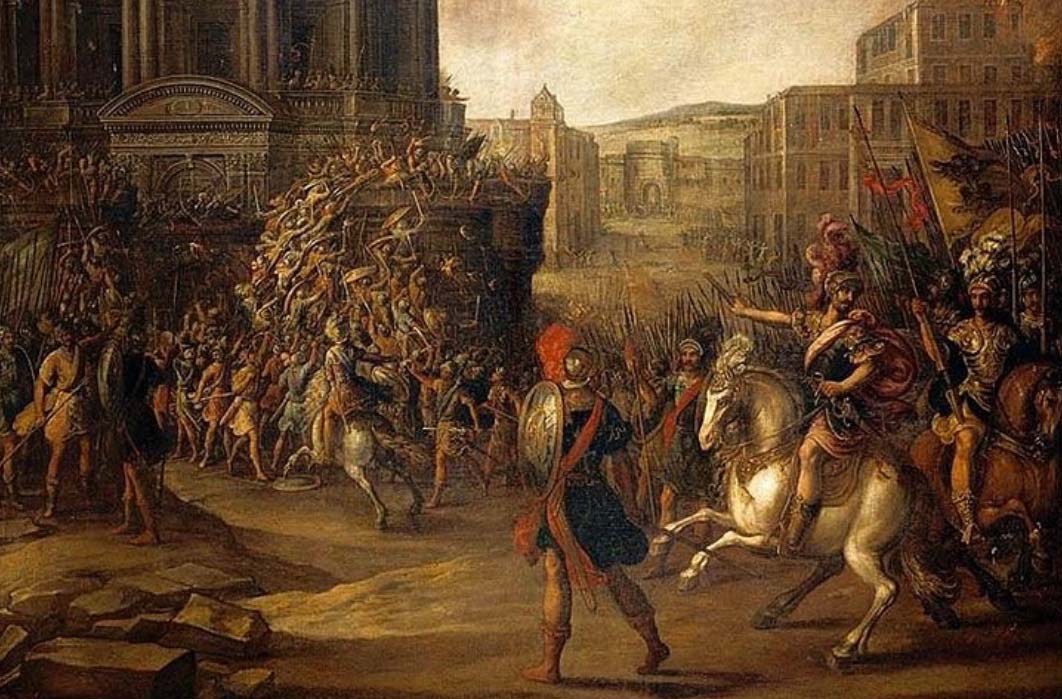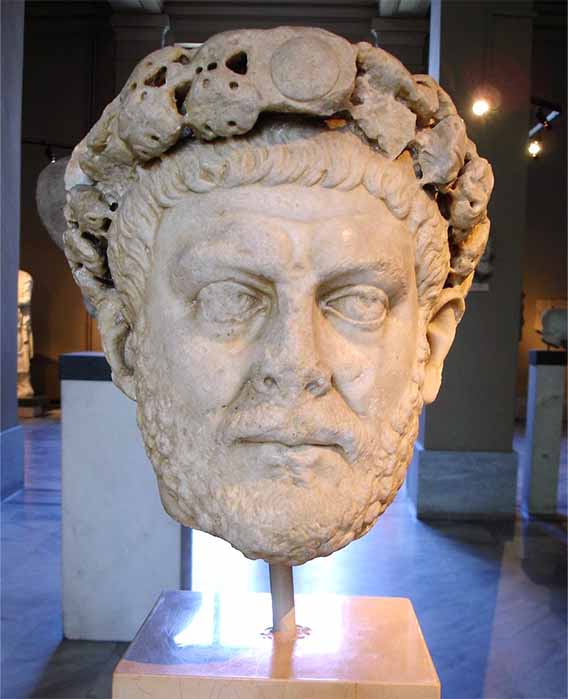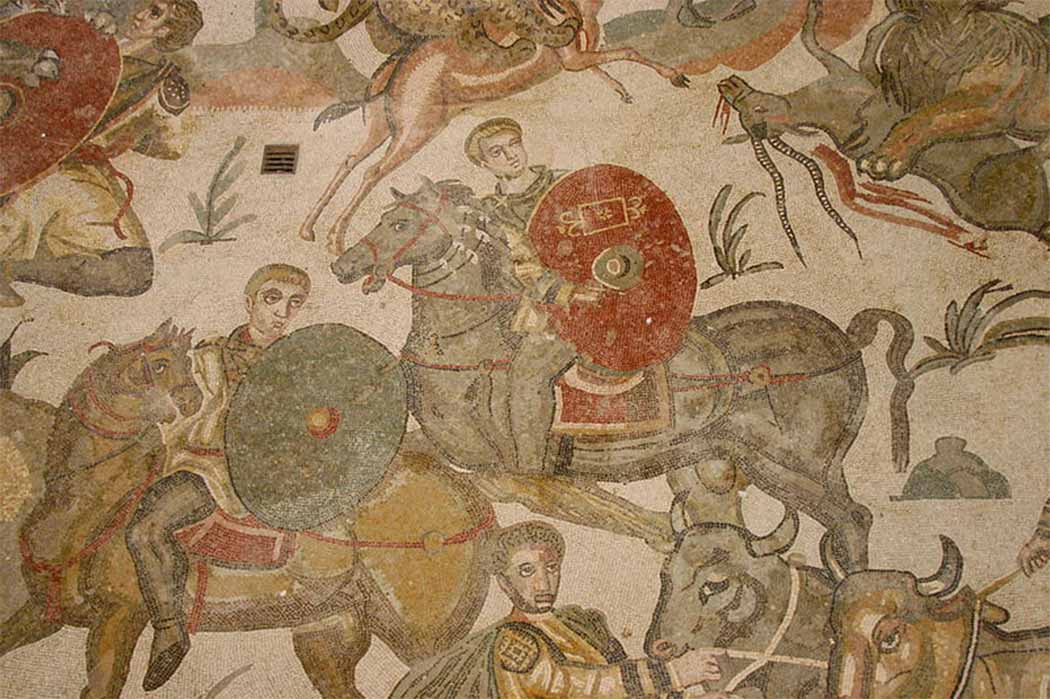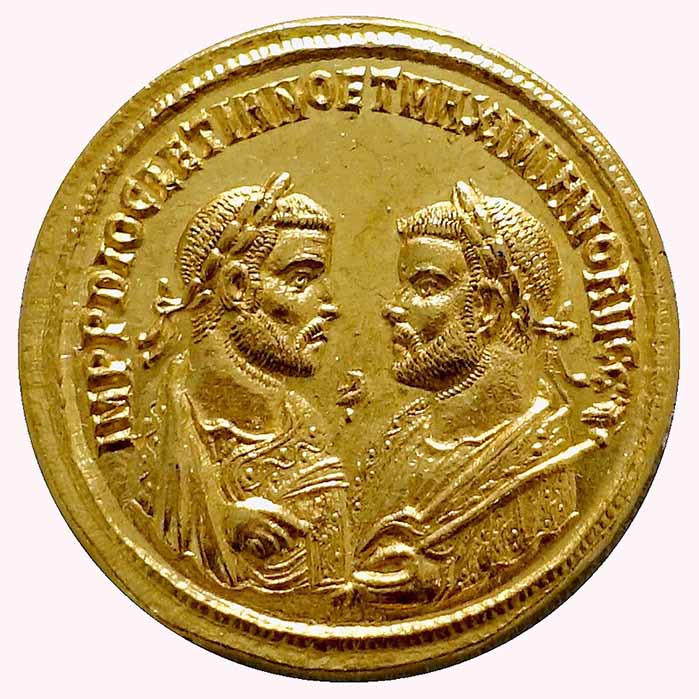
Diocletian’s Utopia: The Tetrarchy Of The Roman Empire (285 – 325 AD)
When Roman General Diocletian was designated Emperor by his army in 284, he followed suit of many General-Emperors before him and engaged in war against the legitimate Emperor in place in order to replace him. This violent change of reign thus resembled most of those that characterized the Military Anarchy period of the Roman Empire during the third century. However, what differed this time was that the victorious Diocletian was now in the presence of a favourable socio-political climate that had not existed for 50 years.
Consequently, Diocletian had the opportunity to assert his qualities in the context of instituting a centralized monarchial regime dubbed the Dominate. By doing so, he was successful in establishing a legacy that would correspond to a rebirth of Roman military might and a return of an invigorating economic dynamism for the Roman world. One of Diocletian’s most significant contributions to the establishment of this new order was the institution of the Tetrarchy. This well envisioned experiment of a new system of government was instituted mainly with the intent of mitigating potential successions’ tribulations such as those that plagued the third century, yet if faced a demise less that 40 years later.

Statue head of the Roman Emperor Diocletian (284-305 AD) Istanbul - Archaeological Museum (G.dallorto / CC0)
Diocletian’s Rise
Enlisted at a very young age in the army, Diocletian stood out during the reign of Emperor Probus. This general of modest origins, a leader in the formidable army of Illyria, commanded the imperial guard after the death of Emperor Numerian in 284. After having been proclaimed Emperor by the armies of the East, Diocletian arranged for the execution of the supposed murderer of Numerian, the Praetorian prefect Arrius Aper. Diocletian, who may also have collaborated in the murder of Numerian, now had to fight his rival. Taking the lead of his army, he headed on to challenge the army of Emperor Carinus, the older brother of Numerian and Emperor in the West. The Battle of Margus, in Moesia (present day Serbia), which was turning in Carinus’ favour, ended when the latter was killed during the clash. Carinus’ army then joined Diocletian’s, who by this pure stroke of luck became the sole master of the Empire.
Unlike his predecessors, Diocletian was a man of government as well as a man of the sword. His personality was forged by intelligence and political sense as well as by feats in battle. Diocletian’s reign marked the beginning of what modern historians call the Dominate. This period corresponded to the culmination of absolutist tendencies which ultimately prevailed over the traditions of the Principate inaugurated by Emperor Augustus three centuries earlier.
Diocletian and Maximianus Herculius, Elephantenquadriga, Rome (287 AD) Bode-Museum (Public Domain)
Diocletian’s Innovations
Diocletian’s reign was innovative in many ways. The most striking was undoubtedly the creation of the Tetrarchy. This system of government where authority was shared between two and then four men began in 286 when Diocletian associated Maximian to power. An uneducated man of modest origins and of brutal morals, Maximian entered the Roman army very early on and distinguished himself under Emperors Aurelian and Probus. He was also a long-time friend of Diocletian. Promoted ‘Caesar’ in 285 by Diocletian (that is deputy and successor to the Emperor), he was elevated and associated to power with the title of ‘Augustus’ the following year. It was the first step toward the Tetrarchy. Like Diocletian, Maximian held the title of ‘Augustus’, but it was Diocletian who made the final decisions. Given the immensity of the task of governing the Empire, this political concept had been making its way into the collective consciousness for more than a century.

Roman cavalry in Big Game Hunt Mosaic, Villa Romana del Casale, Sicily (4th century AD) (José Luiz Bernardes Ribeiro / CC BY-SA 4.0)





